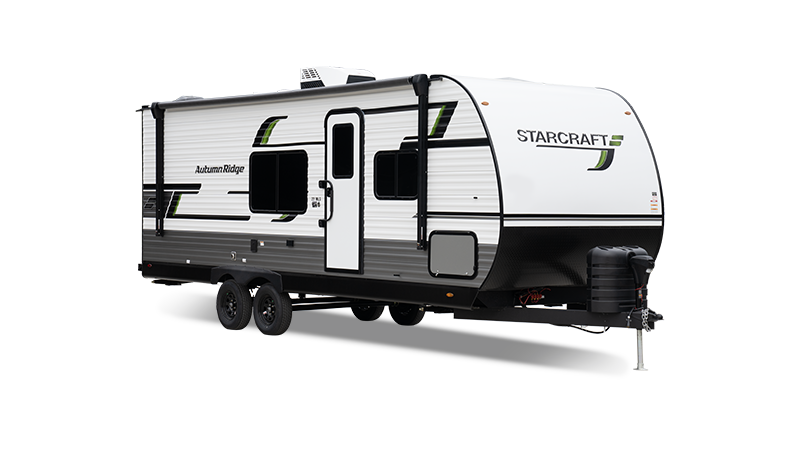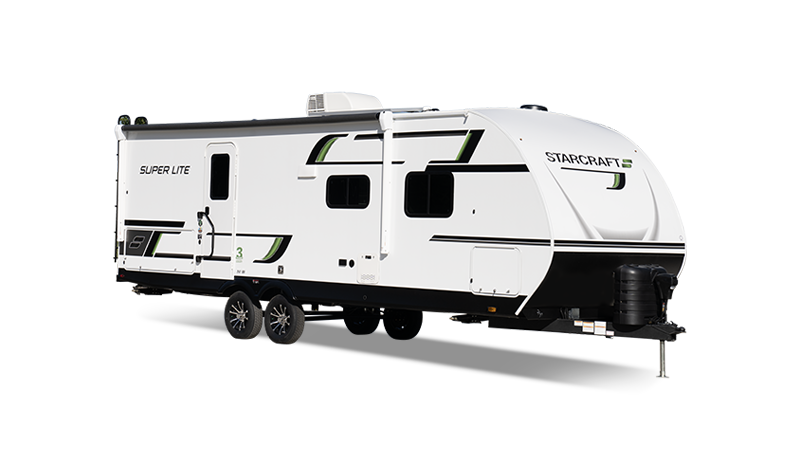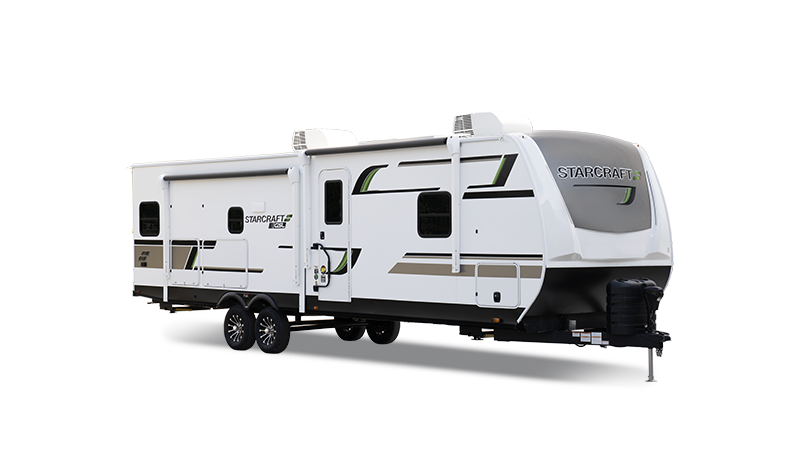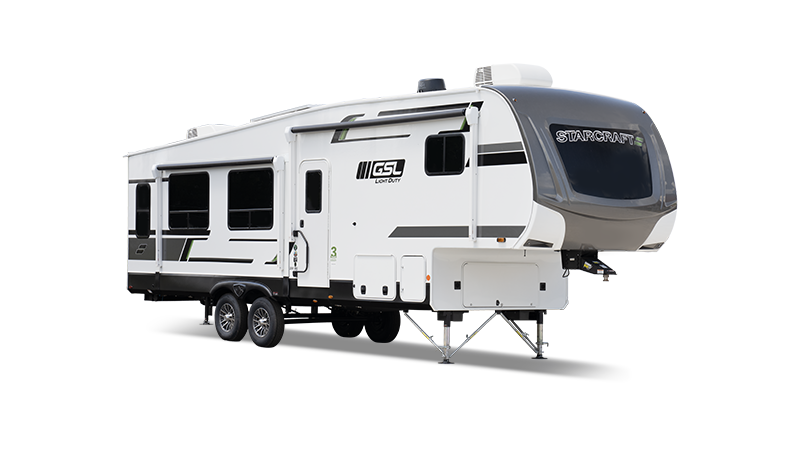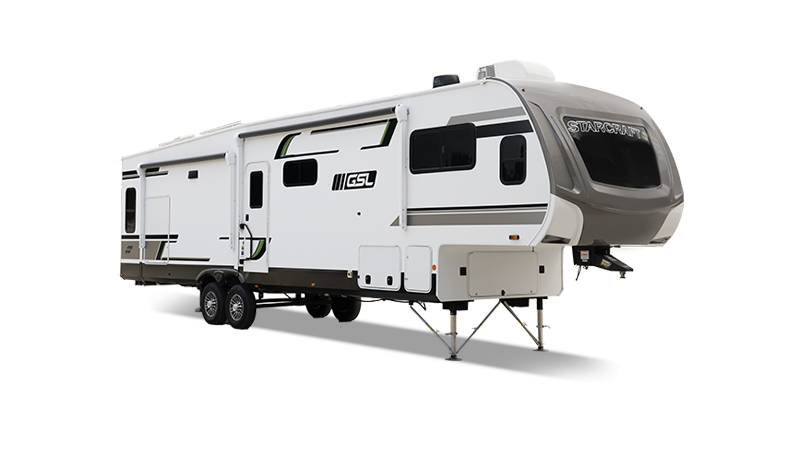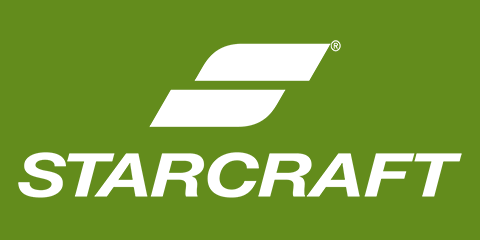Important terms to know
The first step to finding your dream trailer is to determine the towing capacity of your tow vehicle. Once you’ve determined your tow rating, compare that figure to the Gross Vehicle Weight Rating (GVWR) of the trailer in which you are interested. It is important for your safety and enjoyment that your tow vehicle be adequately sized and equipped to tow and handle the GVWR of the RV you select.
Gross Vehicle Weight Rating (GVWR)
GVWR is the maximum permissible weight of the RV, including the UVW plus all passengers, personal items, cargo, fluids, options and dealer-installed accessories. The GVWR is equal to or greater than the sum of the UVW and the GCCC.
Unloaded Vehicle Weight (UVW)
Sometimes referred to as “Dry Weight,” UVW means the weight of an RV as built at the factory. The UVW, as used in Starcraft product literature and other promotional materials, does not include cargo, fresh water, propane gas, occupants, options or dealer-installed accessories. It does include so-called “forced options," like the Customer Convenience Package.
Gross Cargo Carrying Capacity (GCCC)
GCCC is the maximum cargo carrying capacity. GCCC is equal to the GVWR minus the UVW. The GCCC will be reduced by the weight of fresh water, wastewater, propane gas, occupants, personal items or dealer-installed accessories.
Dry Hitch Weight (DHW)
Also known as tongue weight, DHW is the portion of the weight of the trailer that is carried on the hitch. This information is important in matching the hitch on your tow vehicle with the trailer or vehicle to be towed. Hitches are rated by both their towing capacity and their tongue weight, also known as tongue load or vertical load rating.
Gross Axle Weight Rating (GAWR)
GAWR is the maximum allowable weight each axle assembly is designed to carry. This is important to know because it’s possible to be under the GVWR and still exceed an axle rating, depending on how you load the RV with your personal cargo.
Starcraft recommends you do not exceed the GVWR of the trailer. Additionally, once you have loaded your trailer for camping, we suggest you weigh the trailer to ensure it does not exceed the GVWR of the trailer.

